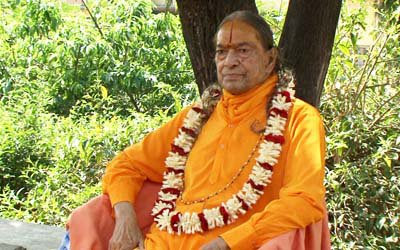From all the scriptures we need to understand the answers to three questions:
1. What is our relationship with God?2. What is the means for establishing that relationship?3. What final goal will we attain once that relationship has been established?
These questions are addressed by Shree Maharajji’s philosophy which has been summarized as below:
- Every living being is incessantly searching for happiness. This search is natural to our being, since we are an eternal part of God, who is the ocean of Divine Bliss. The search for happiness is the search for God, except that is unknown to our mind and intellect. Hence, God-realization is the goal of our lives.
- The only means of knowing God is through his Grace, whereby He Himself bestows His Divine knowledge upon the soul.
- If we wish to receive that Divine Grace, we must surrender ourselves to Him. This surrender is not an external act; it should be from within. True surrender is that of the mind.
- At this stage, we need a Guru, or a Spiritual Master who can explain to us on the basis of the scriptures how to detach the mind from the world and attach it to God. The qualification of a genuine spiritual Master is that he must be God-realized himself.
- Although the Vedas mention the three means of karm, gyana, and bhakti, our goal of God-realization can be accomplished through bhakti alone. Karm needs the addition of bhakti to make it karmyog; gyan needs the addition of bhakti to make it bhakti to it to make it gyanyog; while bhakti is by itself bhaktiyog.
- This bhakti or devotion must be performed selflessly, without the desire for any material rewards. Even the desire for liberation is an inferior desire, since liberation is an automatic by-product of attaining devotion.
- In this devotion, we can establish five kinds of relationships with the Supreme Being. We can look upon Him as our King, our Master, our Friend, our Child, or our Beloved. Amongst these, worshipping God as our Beloved, in the mood of the gopies of Vrindaban, is the highest.
- When our heart is perfectly cleansed by the practice of devotion, we will receive another kind of devotion by the Grace of our Spiritual Master, called perfect devotion or Divine Love. This Divine Love is an eternal power of God; it is such a power that God Himself becomes captivated by the devotee who possesses it. With that Divine Love, we will engage in the eternal loving service of the Supreme Lord, and upon leaving this body, we will enter His eternal Divine leelas.







Awesome Blog!!
ReplyDelete